Reviews about "Higher School of Economics, National Research University"
The full name of the educational institution is National research university"Higher School of Economics", abbreviated NRU HSE. The unofficial name - the result of student folk art - "Tower".
This university is in the top 5 best universities country and is rightly considered the most progressive and prestigious among the metropolitan institutions.
General information about the Higher School of Economics
The university operates on a budgetary and commercial basis: the institution receives state subsidies, income from its own scientific projects, contract students and from third party sponsors and organizations. Such multi-channel injections into the university budget enable the institution's management to constantly improve the material and technical base of the HSE and the very quality of education.
There are 128 research centers, 36 scientific and design laboratories, 32 international laboratories under the guidance of foreign researchers on the basis of the Higher School of Economics. HSE conducts the most intensive international activity among metropolitan universities, cooperates with 298 foreign partners, has 41 double degree programs with foreign universities.
It is noteworthy that from the very day of its foundation, the institution has been headed by a permanent rector - Ya. I. Kuzminov.
“We study not for school, but for life” is the motto of the Higher School of Economics.
History of University
The Higher School of Economics cannot boast of a turbulent history. The first brick of this was not laid by Peter I himself, and Lomonosov or Nietzsche did not trample its corridors.
This is a relatively young, but very intensively developing, progressive university. If educational institutions were identified with cities, then HSE would be Singapore or Hong Kong.
So, the school was opened for students with November 17, 1992. Already in 2009, this university received the title of National Research University on a competitive basis. 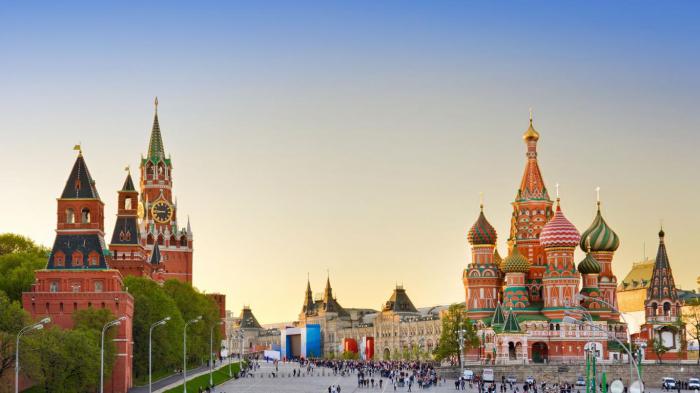
In 2012, he absorbed the Moscow Institute of Electronics and Mathematics (MIEM) and State Academy investment professionals.
This association also to some extent influenced the transformation of the university into one of the best educational institutions The CIS, which since its foundation has been oriented towards the best educational institutions of the old woman in Britain and America. And the point is not only in active international activity, but also in the very manner of teaching, building educational programs, material support and organization of students' leisure.
Transition to the Bologna system of education
The Higher School of Economics is the first university in Russia that switched to the Bologna educational system. In addition, the rector and teaching staff of the university was recruited from among active politicians and public sector workers, and the university itself was created with the assistance of the government. Which gives the right to assert that on the initiative of the HSE, this same Bologna system was introduced in our country. Many of the top management of the university took part in the education reform, as a result of which the USE was introduced. At the same time, a list of so-called inefficient universities was created.
Lyceum and Pre-University Training Center HSE
A lyceum operates on the basis of the university. It offers specialized training to students in grades 10-11 in 8 areas. You can enter the lyceum on a competitive basis. but the selection among applicants is quite tough. After training, the graduate takes the exam on a general basis. Upon admission to HSE University the fact of studying at the lyceum does not add chances to the applicant. But if we take into account that the quality of teaching in the lyceum is higher than in general education schools, then its graduates are more likely to successfully pass the exams and enter the desired university.
The Center for Pre-University Training at the HSE operates on a contract basis. There is a department for students from 5th to 8th grade and for future applicants (9-11th grade). Again, taking preparatory courses at the Higher School of Economics does not directly affect the chances of entering this particular university, but it increases the chances of successfully passing the USE. 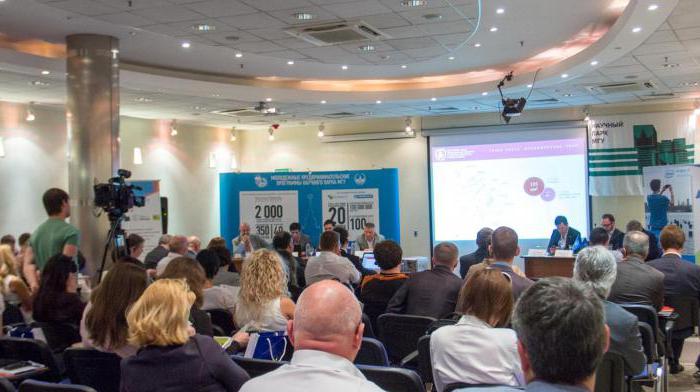
University structure: faculties and educational programs
Faculty of Mathematics- one of the most serious faculties, it has a special prestige. The winners of the All-Russian Olympiad in Mathematics enter the faculty without competition.
Not so long ago, in 2013, members of the international expert council of the faculty, winners of the Fields medal, P. Deligne and Smirnov, rightly put the bachelor's educational program on a par with the best programs world universities. Well, if objectively and extremely honestly, then the program is really not inferior to the similar one in profile technical universities, despite the fact that mathematics students at HSE get the opportunity to extend their studies in Tokyo, Bremen, and Paris under a bilateral program. And the cooperation of the mathematics course with economic disciplines even more unties the hands of graduates when choosing a profession.
Faculty of Physics. The real success of students who study at this faculty is regular practice in real research of the basic organizations of the university - the laboratories of the Russian Academy of Sciences.
Moscow Institute of Electronics and Mathematics (MIEM) has been a structural element of the HSE since 2016. MIEM, being one of the strongest universities in the field of computer technology, after merging with the HSE, further strengthened its position by gaining access to its modern laboratories, especially the space security center. Today, this faculty is one of the few whose graduates can compete in knowledge with the specialists who are trained for NASA.
Faculty of Computer Science is located in a brand new building, rebuilt and equipped so that the eyes of geek applicants in love with computers shine like the case of a brand new MacBook. This faculty closely cooperates with Yandex, it trains the elite of programmers. Someone who, and his graduates have no problems with employment a priori. 
The only thing is that this very elite often settles behind a hillock, which is facilitated by close international connections HSE with universities of highly industrialized countries. It is not for us to condemn such geniuses, they also want to find the best use for their skills, abilities and brains. It is not their fault that in their homeland they can reveal their potential by 30%. Plus financial motives, where without them? Russian companies these graduates are taken away instantly with all their ingenious quirks. Most employers are exclusively positive reviews about the HSE as a training center for highly qualified personnel, especially from the Faculty of Computer Science.
Faculty of Business and Management trains specialists in the main economic areas: management, corporate governance, administration, marketing. He cooks quite well, but the "trick" of the faculty is the best logistics school in the country today (the educational program "Logistics and Supply Chain Management"). 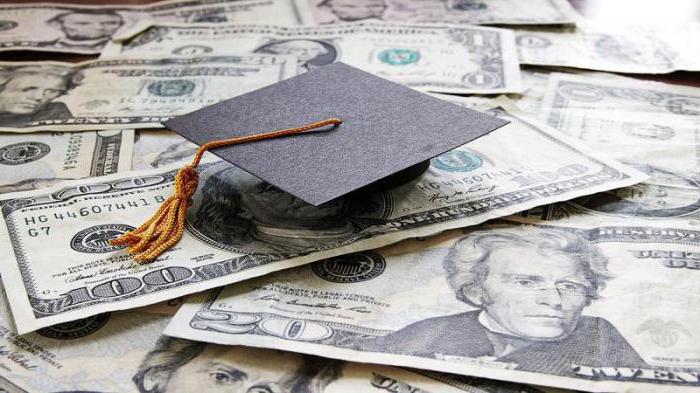
Faculty of Law. We can safely say that this faculty trains the best lawyers of Russian modernity. This is not unreasonable, because the university itself was created not without the participation of the administrative and ruling elite. It is important to note that students are taught material with a huge emphasis on practice. Invite experts from public institutions, practicing lawyers, etc.
Faculty of Humanities. This faculty cannot be called a specialized one for the HSE, experts also note that humanities students are trained here with the understanding that their specialization is a priori inferior to computer scientists or economists. But the faculty has the strongest school of foreign languages. Also, most of the lectures are public and optional for students of other specialties. Every student who wants to expand their horizons can come to cultural studies, philosophy and additional courses of foreign languages.
Faculty of Communications, Media and Design. This faculty is the patrimony of female students, there are even fewer males here than in the Pedagogical Institute. Apparently, the laurels of Anna Wintour or Carrie Bradshaw haunt the fair sex more. But seriously, the faculty trains not only journalists, but rather full-fledged specialists for media communications with an emphasis on working in the Internet environment, PR companies, and design institutions. 
Faculty of Economic Sciences- the most specialized and largest faculty. Student reviews about economics and statistics at the HSE as a field of study sound rather ambiguous. Allegedly, the academic load among students is on the verge of unbearable. But the cooperation with the world's transnational corporations and universities, which is available at this faculty, gives students access to unique knowledge and the possibility of unlimited development and successful employment anywhere in the world. The future Henry Fords and Adam Smiths are produced here. Let's lower our eyes to the fact that the notorious S. Mavrodi successfully unlearned here.
International Institute of Economics and Finance (ICEF)
This faculty should definitely be discussed separately. This is a diamond among pearls. Unique educational institution in the CIS. To create it back in 1997, the Higher School of Economics and the London School of Economics (one of the three leaders in economic education in the world) joined forces. And it turned out such a grandiose brainchild. Graduates of the institute receive both candy and ice cream - a diploma from the Higher School of Economics and a diploma from the London School of Economics. 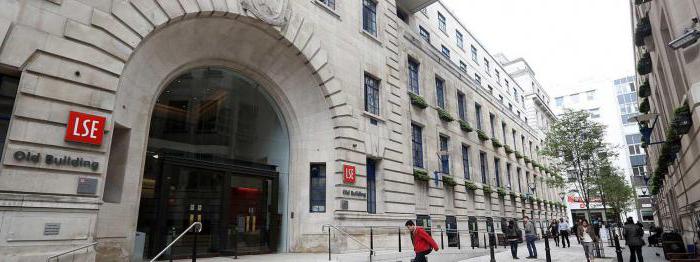 The competition is merciless, and the load on the faculty is impressive. From the very first day of school, all training is conducted in English. Budget places only for the winners of the All-Russian Olympiad. rave reviews about international relations at the HSE only fuel the interest of the public in this university. Students spend a third of the course absorbing all the practical knowledge that the experience of such an education can give. The excitement around admission to this faculty is huge, even the tuition fee of 600 thousand rubles a year does not stop applicants.
The competition is merciless, and the load on the faculty is impressive. From the very first day of school, all training is conducted in English. Budget places only for the winners of the All-Russian Olympiad. rave reviews about international relations at the HSE only fuel the interest of the public in this university. Students spend a third of the course absorbing all the practical knowledge that the experience of such an education can give. The excitement around admission to this faculty is huge, even the tuition fee of 600 thousand rubles a year does not stop applicants.
If you don’t have the courage and finances to study at ICEF, you can get a bachelor’s degree at another faculty, and enter the master’s program under a double degree program. HSE has 40 such programs.
Features of studying at the HSE
Exists a large number of educational features at the Higher School of Economics. Student reviews note that studying at this university is completely different from standard education in our country. But this is easy to explain - the university eagerly absorbs the experience of successful world educational institutions. And if you pay attention to the success of HSE graduates, then other national universities would also do well to expand their views on teaching and not turn away from successful world experience.
The Higher School of Economics became one of the first national universities that switched to the 4+2 study program (bachelor's, master's). The academic year is not divided into semesters, but into modules, there are four of them, at the end of each student there is an assessment. The sum of the module grades determines the annual grade.
The grading system is ten-point, in the European manner. 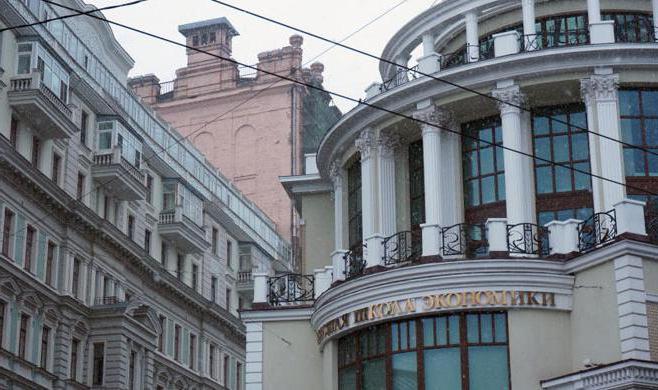
In building tactics educational process a focus on success. Students are immediately prepared to be confident, competitive and highly motivated. The university has a rating system. HSE students' comments about these very ratings are full of diabolical emoticons, but even dissatisfied, tired students admit that nothing motivates as much as this very rating risk.
So what's the deal? Yes, everything is simple. contractors from high rating receive discounts or are transferred to the budget. State employees with a high rating keep their scholarships, those with an average rating lose their scholarships, and those with a low rating are transferred to a contract. This encourages students to be active, learn non-stop, get used to the conditions of a highly competitive environment.
An item like " Physical Culture, the university does not. There is gym, various sections, courses, etc. Please develop, take care of your health and physical condition. But this is a matter of choice.
Positive feedback from students about HSE
Only the opinion of children can be more subjective than the opinions of students. Often, HSE student reviews are based on personal success or failure in the learning process. But quite a few young people dare to state their opinion about HSE objectively and rationally.
A huge plus for the university - for this circumstance alone, it needs to erect a monument in the form of a happy student - there is practically no corruption at the HSE. This is noted by most students. Either the reason is the intensive financing of the activities of the university by sponsors, or loyalty to the principles of "European transparency", but students agree that getting a diploma only with knowledge is very real here.
The quality of knowledge, lectures and teacher training varies across faculties. If we analyze the reviews about the HSE in Moscow, then students agree that the quality of teaching in the humanities and political science is a little behind.
Not a single review describes the quality of education as eloquently as the statistics of employment by profile after graduation from this university: 94% of graduates found suitable job. This is despite the fact that 48% warmed up a warm corporate place even before receiving a diploma. Leading companies send their recruits to prestigious universities so that they look closely at valuable personnel when they are still sitting on the student bench. 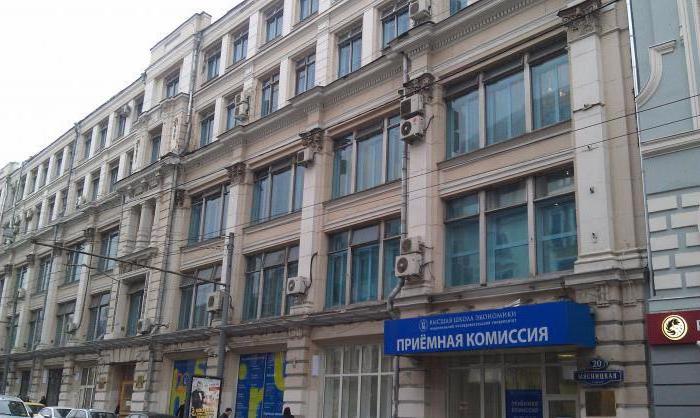
What are the negative aspects of studying at the HSE most often indicated by students in their reviews?
Most of all, students complain about the workload and the need to gain knowledge in a permanently competitive environment. It is endless to talk about whether it is possible to push students who were children yesterday with their foreheads together. But the leadership of the HSE has made a choice and is not going to cancel the rating system.
Also, students are indignant about the Anti-Plagiarism system. There is a university program that checks every work. In the text, only 20% of quoting with an exact indication of the source is allowed. Everything else is the author's personal judgments, conclusions, etc. Naturally, this greatly increases the time for preparing essays and term papers for students.
Dormitories of the Higher School of Economics
The HSE buildings are scattered around the city, as are the dormitories. Today, the Higher School of Economics has 9 dormitories. Reviews about HSE dormitories are mostly positive, but utterly ironic. The whole humor lies in the fact that they are located in the Moscow region, and the road from the place of residence to the educational building is an inexhaustible ground for student jokes. If we discard this inconvenience, then the rest of the HSE dormitories are made “for people”. They are apartment type, they have all the amenities. There is a corridor type hostel in Moscow. It is cheaper and closer, but only suitable for residents who are unpretentious in terms of comfort. 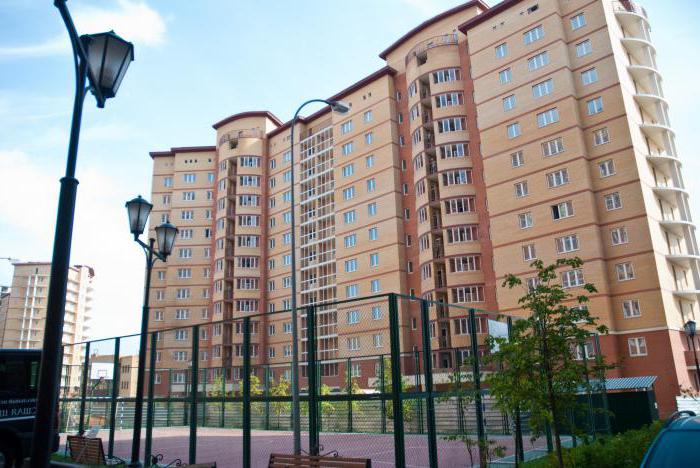
All hostels have wireless free Internet with access at any time of the day.
The atmosphere in the hostel is upbeat, productive and motivating. The HSE did an elementary and ingenious thing, they paid tribute to the desire of every person for everyday comfort. They made modern classrooms and hostels for students, and they do not care how to accumulate water in basins, wash their hair over the sink, etc. But they care about acquiring knowledge and self-development. 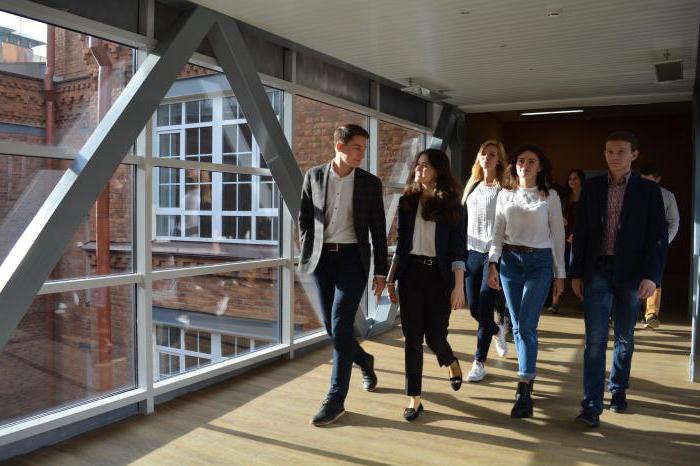
Master's at HSE: student reviews, master's programs
The university accepts documents for the magistracy in in electronic format. After the approval of the electronic application, the originals can be brought to the selection committee or sent by mail.
All applicants pass a competition in the form of entrance exams (most often economics + English + mathematics, but disciplines vary depending on the faculty).
The order for enrollment is issued somewhere in the middle of August, two weeks before the start of lectures. 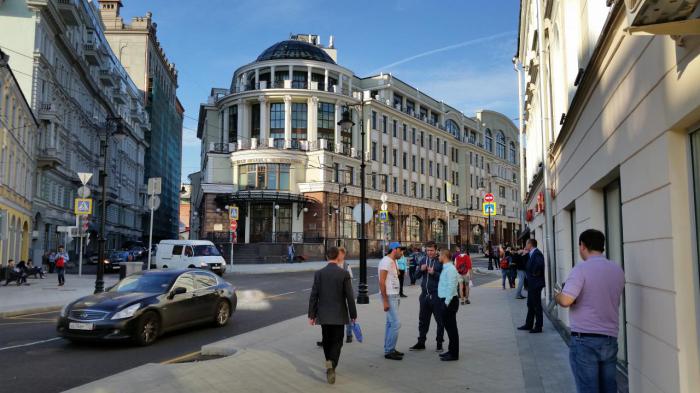
Master's programs at HSE look very attractive. Almost all of them are bilateral and enable students to obtain double diplomas and get a unique learning experience in top universities peace. Today, HSE cooperates with Berlin, the Pantheon-Sorbonne in Paris, Mason in New York, with 10 universities in Britain, including the London School of Political Science, as well as higher institutions in Canada, USA, Luxembourg, Finland, etc.
: National Research University Higher School of Economics (GU-HSE) Higher School of Economics (NRU HSE)
The National Research University Higher School of Economics (NRU HSE) is one of the youngest universities in Russia and, despite this fact, one of the leading and largest universities in the country.
Vyshka was established in 1992. Until 2009, the university was called " State University - high school Economics” (SU-HSE). HSE professors since its inception have been leading economists who have worked and are working in the government and other state structures. The university is engaged in the preparation of intellectual and human resources for education, science, business, civil society and states.
Since 2011, the university has had the status of a national research university. Moscow state institute in Electronics and Mathematics in 2012 was included in the Higher School of Economics, which expanded the range of areas of study for the Higher School of Economics in such specialties as nanotechnology, nanoelectronics, computer and Information Security etc.
HSE has more than 20 faculties and departments. They are based on applied research on orders of the Ministry of Economy of Russia, the Central Bank, the Ministry of Education of the Russian Federation, large commercial enterprises and banking institutions. In addition to training high-class economists, the university graduates sociologists, specialists in public administration, journalists, political scientists, lawyers. HSE has faculties of business informatics, management, mathematics, psychology, history, philosophy, International Institute Economics and Finance and the Institute of Demography.
Now about 20,000 students study at the university and about 21,000 students of additional programs vocational education. In 2012, 4,382 people were accepted for undergraduate studies at the Higher School of Economics, of which 2,972 people entered budget places. The competition among applicants to the Higher School of Economics in 2012 at various faculties ranged from 2 to 68 people per place.
In almost all faculties, admission is based on USE results. Additional exams are available only at the Faculty of Mathematics and at the Department of Business and Political Journalism (Faculty of Political Science). For admission to the Faculty of Mathematics, you must additionally pass entrance test in mathematics of a profile orientation, for admission to the Faculty of Journalism it is necessary to pass a creative competition.
The Faculty of Pre-University Training operates at the National Research University Higher School of Economics, which includes stationary and non-stationary training.
The stationary preparation for entering the university includes: the 11th grade program, the 10th-11th grade program, the 9th grade program, the Scrabble Club program (grades 7-8) and the Unified State Examination workshop. Education is paid, conducted on the basis of the National Research University Higher School of Economics.
Non-stationary training includes several areas. For example, the Higher School of Economics cooperates with basic schools where students are purposefully prepared for learning in this university. There is also an Internet school for out-of-town schoolchildren in grades 9-11.
Basically, students of the 11th grade become students of the Internet school, because. training is designed for one year and is held from October to April (you can become a member of the Internet school at any time during this period). Education is free. Everyone is offered a serious self-training in mathematics, in Russian and English, in subjects of socio-economic profile and in history. For an additional fee (2,000 rubles per subject), you can purchase services to control knowledge in subjects, as well as take part in ratings in these subjects among Internet school students. About 50% of Internet School students become HSE students in the future.
The university has the most extensive International activity, more than 130 foreign partners, including foreign and international universities, research centers and associations, as well as international business organizations. Foreign languages are taught in large volume at all faculties, and at a number of faculties teaching is conducted directly on English language. In parallel with the Russian diploma, graduates of the National Research University Higher School of Economics can receive double diplomas, because. HSE study programs are recognized among dozens of the best European universities. Since 2011, the HSE Faculty of Economics, in parallel with the Russian School of Economics (NES), has launched a Joint Bachelor's Program in Economics. Graduates receive two diplomas.
At the university operates military department. Students are provided with places in one of six hostels. The university is also represented by three campuses in the following cities, except for Moscow: St. Petersburg, Perm and Nizhny Novgorod.
More than 300 programs implemented on the basis of the Higher School of Economics additional education and business education (including MBA, DBA, EMBA programs).
Statistics confirm the deservedly high status of the National Research University Higher School of Economics - up to 80% of graduates work in their specialty, 20% continue their studies at the magistracy or postgraduate studies at the Higher School of Economics. It is not surprising that, according to independent ratings, the Higher School of Economics holds the first place in Russia in terms of wages among graduates.
Official website of the National Research University Higher School of Economics.
Lyceum NRU "Higher School of Economics"
Together with the Moscow International Forum "City of Education", which will be held on September 7-9 in Moscow at the 75th pavilion of VDNKh, Newtonew publishes a series of materials about educational institutions that are most productively combined with city resources.
The Higher School of Economics Lyceum is a bright and inspiring phenomenon in the Russian school education system. The lyceum is one of the leading schools in the country, takes 2nd place in the ranking best schools Moscow and 10th place in the ranking of the best schools in Russia. This is a school where only high school students study. Admission to it is carried out on a competitive basis, as in a university - applicants write a motivational essay, pass an interview, including comprehensive testing.
There are eight educational areas at the school: "Economics and Social Sciences", "Economics and Mathematics", "Jurisprudence", "Humanities", "Mathematics, Informatics and Engineering", "Design", "Oriental Studies" and "Psychology". In the process of learning, lyceum students can move from one direction to another if they realize that their interests have changed.
As for the educational process itself, everything here is also “in an adult way”. Each lyceum student independently draws up an individual curriculum, where there are compulsory subjects for all, as well as a variable part. The school has a large number of electives that students attend at will.
One of the main tasks of the lyceum is to provide high school students with space for freedom and choice of their educational trajectory, the opportunity to try on a professional role, to choose what they really want to do in the future.
This approach to the admission and graduation of students justifies itself - although the HSE Lyceum has existed only since 2013, it is already one of the best schools in the country.
In the list of the 500 best schools in the country, the lyceum is in tenth place; among the schools of socio-economic and socio-humanitarian profiles, it ranks first, and among the schools of the philological profile - the second.
About 70% of lyceum graduates become students of top Russian universities. Many of them then continue their studies at the Higher School of Economics itself.
Newtone (N). What do you think are the main challenges facing government systems education?
Dmitry Fishbein (DF). In my opinion, the main challenge facing public schools is the ability to change and adapt to the emerging needs of students.
If we are talking about big cities, and especially megacities, here the number of educational opportunities is so large and diverse that in order for a student to stay at school, he needs to be offered something interesting, taking into account his personal characteristics. And therein lies the challenge.
The Law on Education provides for the possibility of choosing the form of education. And even if this is a full-time form, but the child does not actually attend half of the classes, then, in fact, the child has dropped out of school. Therefore, the important question is how to ensure that the value of education remains in the school.
Old methods - a simple transfer of knowledge - will not solve anything: now a child can receive any information from numerous sources. Therefore, the school should offer the student some kind of interesting activity for him - then there is a chance to overcome this challenge.
N. What aspects of the educational process need to be controlled (for example, by the administration of the educational institution, the department of education and, in increasing order, the state regulator)?
DF. It is important to understand what we mean by the word "control". In management, one of the definitions of control is: “Control is a way to lead people to success.”
If control is understood as tracking the processes that should take place at the school, or those processes that are implemented at the regional level, then the need for high level there is no control.
Schools are very different both in terms of the social composition of families of students and in terms of funding. In this regard, it seems to me that it is not very reasonable to develop uniform rules and control their implementation.
Therefore, if we are talking about some specific aspects of the educational process, then, for example, it is worth monitoring the safety of children at school - this is extremely important. But these aspects come to my mind a little.

N. In that case, what is "control" in your school?
DF. We at the Lyceum are just trying to get away from the standard understanding of control. Some may think that this looks like a lack of control, but it is not.
In our opinion, the development of self-control is very important for high school students, so we do not have literal, strict control of students.
We do not track when a student came, when he left, we do not notify parents about this by SMS.
We believe that our zone of control should primarily include the environment that we create: what kind of adults work in the lyceum, how they communicate with students, what various types of lesson and extracurricular activities offered, which may depend on the initiative of the lyceum students themselves.
For example, all the events that take place in the lyceum are the initiative of the children themselves, and we think that this is right.
That is, we have little standard control - over attendance, academic performance, behavior. But there is a lot of trust in students and understanding that they themselves must determine the goals and objectives of development, and in order to achieve them, they need to build their activities in the lyceum and outside it. Our role, rather, is not to control the guys, but to help by providing a variety of opportunities.

N. By what criteria do you define “quality of education”?
DF. For us, there is one main criterion - the progress of each student over the two years that he spends at the lyceum, and we try to track this.
If we see that during this time the child was able to understand himself more, realize what he wants to do, where to develop, become more independent, he has acquired self-control skills, then we believe that the quality of education that should be in the lyceum has been achieved.
N. What do you see as the optimal system for assessing students' knowledge? How is this system built in your school?
DF. I think that optimal system evaluation has not yet been created.
We have introduced a cumulative system of final grades in the lyceum. It seems to us that it is most suitable for high school. The essence of this system lies in the fact that the main types of evaluation procedures are determined (control work, creative work etc.) and they are assigned different coefficients in the final mark. Each educational department in the lyceum develops an appropriate assessment formula for its subject area.
This approach, firstly, allows the student to independently build a trajectory for achieving the maximum result - the highest mark for the study period, and secondly, it reduces the subjectivity of the teacher's position.

N. What do you think should determine the content of education? What elements should it include? How do you build the content structure of your educational program?
DF. The key point here is the definition of educational outcomes. Without their specific formulation, it is impossible to talk about the content of the educational program.
It is necessary to develop a program based on educational results. That is, we first need to formulate these results, then determine possible ways their achievements and then understand how to measure them.
At the lyceum, the situation is complicated by the fact that we implement eight different areas of study - from "Mathematics, Informatics and Engineering" to "Oriental Studies". And, in addition to general universal educational outcomes, each of them should have their own specific outcomes. Let's suppose that for lawyers, if we talk about personal results, this is professional ethics.
Now we are just thinking about this issue and, based on an understanding of the educational results that we want to achieve, we are compiling educational programs for directions.

N. How would you define an ideal learning environment?
DF. The ideal educational environment is a diverse environment that is designed based on the needs of the child and in the process of joint activities with the child.
N. How does the environment organized in your school correspond to your ideal ideas about it?
DF. It does not yet correspond to ideal ideas, and this is due to two factors.
First, we have many students. The lyceum has the largest high school in Russia (more than 1,500 people), which means that the desires and needs of the children are very diverse. Not all of them we can satisfy yet.
Secondly, there are limitations with space: we have standard buildings, which does not allow us to create the desired educational environment.

N. What types of educational or extracurricular activities, in your opinion, are lacking today in a general education school?
DF. Here we need to talk about a specific school, but if we try to talk about all of them at once, I will note that the pedagogical community has not yet developed a large “bank of forms for independent learning activities of students”.
We have well-developed formats where the student takes a passive position, and there is not always enough variety of individual independent and small group activities, the exchange of students with the resulting experience.
This is about learning activities. If we talk about extracurricular activities, then I will say about high school.
The circumstances in which we live require a graduate to achieve a high result in the Unified State Examination or at the Olympiad. In this regard, there is a great temptation to build these two years on a very utilitarian model, which is, in fact, training to achieve these results.
We are deeply convinced that it is in extracurricular activities that non-utilitarian things should happen, there should be many activities that may, at first glance, seem unnecessary and which cannot bring the student momentary concrete result.
So, in the lyceum there is an elective in the Norwegian language. Why not? It is important that the child has the opportunity to try to do what he wants.
And one more aspect, if we are talking about profiling in high school, is to provide an opportunity for children to try themselves in other areas of interest to them, for example, to allow mathematics to parse poetic texts, and the humanities to study programming.
N. What approaches, techniques and activities that are used in your school would you recommend to be extended to all schools in the country (or even the world)?
DF. We are still “babies”: the lyceum has existed for only four years, and it seems to me too early to talk about some approaches, techniques and activities that we would like to spread around the world.
Also, due to the fact that the lyceum is a structural subdivision of the National Research University Higher School of Economics, and due to the fact that research competence is one of the important educational results for us, we know how to organize work with students related to their project and research activities.
In addition, in our lyceum we have a strange subject called TOK (from the English Theory of Knowledge, theory of knowledge), which came from the system International Baccalaureate but we have rethought it. It solves two problems: with its help, we try to create a holistic picture of scientific knowledge and, in the context of this, to increase the level of critical thinking among students.
It seems to me that this is very important and may be of interest to other schools.
![]()
N. The teacher as a person and as a professional - what qualities should he have?
DF. I would highlight two key points here.
I am convinced that a teacher does not have to love children. It is not necessary to love children - it is necessary to create such a space of interest, interaction and technology that will allow the student to independently move towards knowledge. I can be a great person, I can have great relationships with students, but it can be very inefficient.
Besides, professional teacher, especially in high school, should be able to do something other than teach. Today, a standard situation is hardly possible when a person graduates pedagogical university, goes to school, works there for 20 years, and has no other interests than work.
Both international studies and our experience show that a teacher who has some hobbies becomes a hundred times more interesting and meaningful for students.
Yes, it’s more difficult for me as a director with such teachers, because you tell him: “Today at 15 o’clock there is a meeting,” and he replies that he has mountaineering at this time and this is his passion. I can take it hard, but at the same time I understand that if a person has something else besides work and he is professional there, then this has a positive effect on his interaction with students.
N. How do you select personnel?
DF. There are many university teachers in the lyceum, and not only from the Higher School of Economics - this is our first feature.
The second feature is that, I confess, it is quite difficult to get to us without acquaintance: recommendations from those who have been working at the lyceum for more than a year and understand our specifics are very important for us, they see that new person will not only fit the formal requirements of experience and skills, but will also organically fit into the lyceum environment.
We have a special atmosphere here, a certain attitude towards the interaction between an adult and a child: it should be on an equal footing, an adult should understand that his task is to ensure the progress of the student, and therefore he should first of all not answer the questions of the lyceum student, but ask them.
It is not so easy for a new person to join the lyceum environment, in connection with which the heads of departments are the key figure in the selection of teachers. They know the professional community and, when inviting someone to work at the lyceum, they understand whether this person fits the existing context and format. This is the main way of recruiting, and I think the future lies with such networking interactions.
1. To the federal state autonomous educational institution higher education National Research University Higher School of Economics (hereinafter referred to as NRU HSE) for studying at the Lyceum NRU HSE in 2017, citizens are admitted on a competitive basis Russian Federation, foreign citizens and stateless persons, including compatriots living abroad (hereinafter referred to as applicants), who are registered at the place of residence or at the place of stay in the city of Moscow, as well as a certificate of basic general education(for graduates of grade 9).
2. Admission to the Lyceum of the Higher School of Economics is carried out on places financed from the budget of the city of Moscow.
3. The organization of admission and enrollment of applicants to the HSE Lyceum is carried out Admissions Committee Lyceum of the National Research University Higher School of Economics (hereinafter referred to as the Admissions Committee).
4. Definition passing score and approval of the lists of persons recommended for admission to the HSE Lyceum is carried out by the Council of the HSE Lyceum.
5. The Chairman of the Admissions Committee is the Director of the HSE Lyceum.
6. The composition, powers and procedures of the Admissions Committee are determined by its Regulations, approved by the Academic Council of the National Research University Higher School of Economics.
7. For interviews that include a comprehensive test, the order of the Vice-Rector, who coordinates the activities of the HSE Lyceum, approves the composition of the commission, whose tasks include organizing the development of tasks, implementing the test procedure, processing the results, organizing the display of works after the publication of the results and explaining the validity of the results.
8. Admission to the HSE Lyceum is carried out in the following areas of study: "Humanities", "Economics and Mathematics", "Economics and Social Sciences", "Design", "Oriental Studies", "Mathematics, Informatics and Engineering", "Jurisprudence", "Psychology" according to admission targets.
9. The number of places for admission, the rules for submitting applications, the procedure for conducting an interview in the form of a comprehensive test, minimum passing scores, and other information about admission to the HSE Lyceum are announced by the HSE Lyceum no later than January 15, 2017.
10. Information about admission to the HSE Lyceum is posted on the HSE corporate website (portal).
11. Admission to the Lyceum of the National Research University Higher School of Economics is carried out in the 10th grade for training in full-time training, according to educational programs secondary general education, corresponding to the federal state educational standard of secondary general education.
12. Submission of applications for participation in an interview, including a comprehensive test, is carried out through the website of the HSE Lyceum on the corporate website (portal) of the Higher School of Economics at the following address: from February 1 to March 15, 2017. By decision of the Academic Council of the National Research University Higher School of Economics, the deadline for submitting applications may be changed.
13. When applying, the applicant:
13.1 fills out a form in which he indicates information about himself, information about his parents (legal representatives), information about the educational organization in which he is studying at the time of application, and the results of training in the current year, information about the right to social benefits;
13.2 consents to the processing of personal data;
13.3 choose no more than two areas of study at the HSE Lyceum, one of which is a priority;
13.4 attaches an essay about himself, motivating the choice of the HSE Lyceum as a place for continuing education (no more than 400 words).
14. Interviews, including a comprehensive test, are carried out on April 9, 16, 23, 2017. April 30 is fixed as reserve day. The Admissions Committee informs applicants about the time and place of the comprehensive test on the website of the HSE Lyceum on the corporate website (portal) of the Higher School of Economics at the following address: on time - no later than 10 calendar days before the start of it.
15. The first part of the comprehensive test includes tasks in the Russian language, mathematics and foreign language(English, German, French, Spanish). The second part of the comprehensive test is variable and includes questions on subjects depending on the direction of study chosen by the applicant at the HSE Lyceum:
- "Economics and Mathematics" - questions on advanced mathematics;
- "Economics and social sciences" - questions on social science, history (optional);
- "Mathematics, Informatics and Engineering" - questions on advanced mathematics, computer science, physics (optional);
15.1. Persons who did not appear for a comprehensive test on good reason(illness or other documented circumstances) are allowed to pass it in additionally organized examination groups or individually in the period before the end of the interview in the form of a comprehensive test. In case of illness, the applicant or his parent (legal representative) is obliged to notify the Admissions Committee about the failure to appear before the start of the comprehensive test, followed by the submission of a corroborating document from a state or municipal medical institution. The document must be submitted to the Admissions Committee on the day following the day of discharge of the applicant after the end of the disease. In other cases, certificates of illness are not accepted by the Admissions Committee and applicants are not allowed to take a comprehensive test. All disputes are considered by the Admissions Committee on an individual basis.
16. The Council of the HSE Lyceum, based on the preliminary results of the interview, which includes a comprehensive test, presented by the Admissions Committee, determines the passing scores for each of the areas and approves the lists recommended for enrollment.
17. The Admissions Committee has the right to apply to the Vice-Rector of the Higher School of Economics, who coordinates the activities of the Lyceum of the Higher School of Economics in accordance with the procedure established by the Higher School of Economics, to allocate additional non-competitive places for applicants:
17.1. having social benefits on the following grounds: disability, the large family, loss of a breadwinner, orphanhood, a subsidy for housing and communal services;
17.2. who are winners and prize-winners of the regional round of the All-Russian Olympiad for schoolchildren for grade 9, winners or prize-winners final stage Olympiad "Highest standard" for grade 9;
17.3. for applicants residing in the Basmanny District of the Central Administrative District of Moscow;
17.4. for applicants who are children of HSE employees.
18. Graduates of the Grade 9 program of the Faculty of Pre-University Studies of the National Research University Higher School of Economics (hereinafter referred to as FDP graduates) can be enrolled in the HSE Lyceum based on the results of the personal rating of a student of the Grade 9 FDP program. The student's personal rating consists of subject ratings in mathematics, Russian and a foreign language, determined on the basis of the results of intermediate control works in these subjects, and, as a result, the total rating for the specified training subjects.
The list of FDP graduates who have the right to enter the HSE Lyceum without passing an interview, including a comprehensive test, is transferred by the Deputy Dean of the FDP to the Executive Secretary of the Admissions Committee until April 7, 2017. The quota of FDP graduates enrolled in the HSE Lyceum is 10% of the HSE Lyceum admission target and includes those FDP graduates who occupy the first places in their personal rating in the number corresponding to the quota.
Refusal to enroll a FDP graduate who has the opportunity to enroll in the HSE Lyceum without passing an interview that includes a comprehensive test does not lead to the granting of this right to graduates who are in that part of the personal rating that initially did not allow them to apply for admission to the HSE Lyceum without passing an interview as a comprehensive test.
The first 20 FDP graduates in the ranking are enrolled in the Higher School of Economics Lyceum for areas of study determined in accordance with their wishes. The remaining FDP graduates, who, based on their rating, have the opportunity to enroll in the HSE Lyceum without passing an interview, including a comprehensive test, are distributed among the areas of study in proportion to the admission target, depending on the specifics of the area.
The distribution of the remaining FDP graduates by areas of study is based on the results of interviews with FDP graduates and their parents.
The order (order) of the interview is determined personal rating. At the same time, in the absence of a free place (in accordance with the quota) or the refusal of FDP graduates to study in areas of study for which there are free places (in accordance with the quota), the FDP graduate is invited to undergo an interview, including a comprehensive test, at the HSE Lyceum for general grounds.
19.2. certificate of basic general education of the established form;
20.2 a copy of the applicant's identity document;
20.3. a copy of a document confirming the relationship between the applicant and the applicant (or the legality of the representation of the rights of the applicant);
20.4 a copy of diplomas, diplomas and certificates confirming participation in intellectual competitions of the regional, all-Russian, international level(in the presence of);
20.5. color photographs (3x4) - 4 pieces;
20.6 personal file, medical and vaccination cards of the applicant, issued by educational organization in which he had previously trained;
20.7. documents confirming the rights to social benefits (if any).
20.8. other documents at your discretion.
21. Parents (legal representatives) of an applicant who is foreign citizen or a stateless person, additionally present a document confirming the applicant's relationship (or the legality of the applicant's rights), and a document confirming the applicant's right to stay in the Russian Federation.
Foreign citizens and stateless persons submit all documents in Russian or in a foreign language together with a duly certified translation into Russian.
22. Copies of the documents presented at the time of admission are kept at the HSE Lyceum for the duration of the applicant's studies.
23. Documents submitted by the parents (legal representatives) of applicants are registered in the register for receiving applications. After registration of the application, the parents (legal representatives) of applicants are issued a receipt for receiving documents containing information about registration number applications for admission of applicants, the list of submitted documents. The receipt is certified by the signature of the official of the HSE Lyceum responsible for receiving documents and the stamp of the HSE Lyceum.
Submission of documents in electronic digital form is not provided.
24. Parents (legal representatives) of applicants who have submitted false documents to the Admissions Committee are liable under the laws of the Russian Federation.
25. Upon completion of the competition and acceptance of documents, admission to the HSE Lyceum for study at the HSE Lyceum is formalized by order of the Vice-Rector, who coordinates the activities of the HSE Lyceum, within 7 working days after the deadline for accepting documents. The Order is placed by the Admissions Committee on the website of the HSE Lyceum on the corporate website (portal) of the Higher School of Economics on the day of its signing and registration.
26. For those released during school year places are accepted students in the following order:
26.1. for admission to vacant places, parents (legal representatives) submit personal applications during the academic year;
26.2. no more than once a month of the academic year, interviews are held for applicants during the academic year;
26.3. admission to vacant places is subject to successful completion of an interview, including a comprehensive test.
The first part of the comprehensive test includes tasks in Russian, mathematics and a foreign language (English, German, French, Spanish).
The second part of the comprehensive test is variable and includes questions on subjects depending on the chosen field of study at the HSE Lyceum:
- "Humanities" - questions on literature, history, social science (optional);
- "Economics and Mathematics" - questions on advanced mathematics.
- "Economics and social sciences" - questions on social science, history;
- "Design" - questions on socio-cultural awareness;
- "Oriental Studies" - questions on history;
- "Mathematics, Informatics and Engineering" - questions on advanced mathematics;
- "Jurisprudence" - questions on history;
- "Psychology" - questions on natural science.
26.4. based on the results of the interview, the Admissions Committee determines the passing score, organizes the display of works, and prepares lists recommended for enrollment. The passing score and the minimum passing score set by the Admissions Committee cannot be less than the passing score and the minimum passing score set by the HSE Lyceum Council during the main enrollment;
26.5. for enrollment and formation of a personal file, parents (legal representatives) of applicants submit documents in accordance with paragraphs 21 - 23 of these Rules;
26.6. Admission to the HSE Lyceum for places vacated during the academic year is issued by order of the Vice-Rector, who coordinates the activities of the HSE Lyceum, based on the decision of the Admission Committee of the HSE Lyceum.
27. All issues related to admission to the HSE Lyceum and not regulated by these Rules are resolved by the Admissions Committee in accordance with the legislation of the Russian Federation.
Project of individual curriculum(selection of subjects depending on the direction of study) - filled in by applicants together with their parents (legal representatives)
